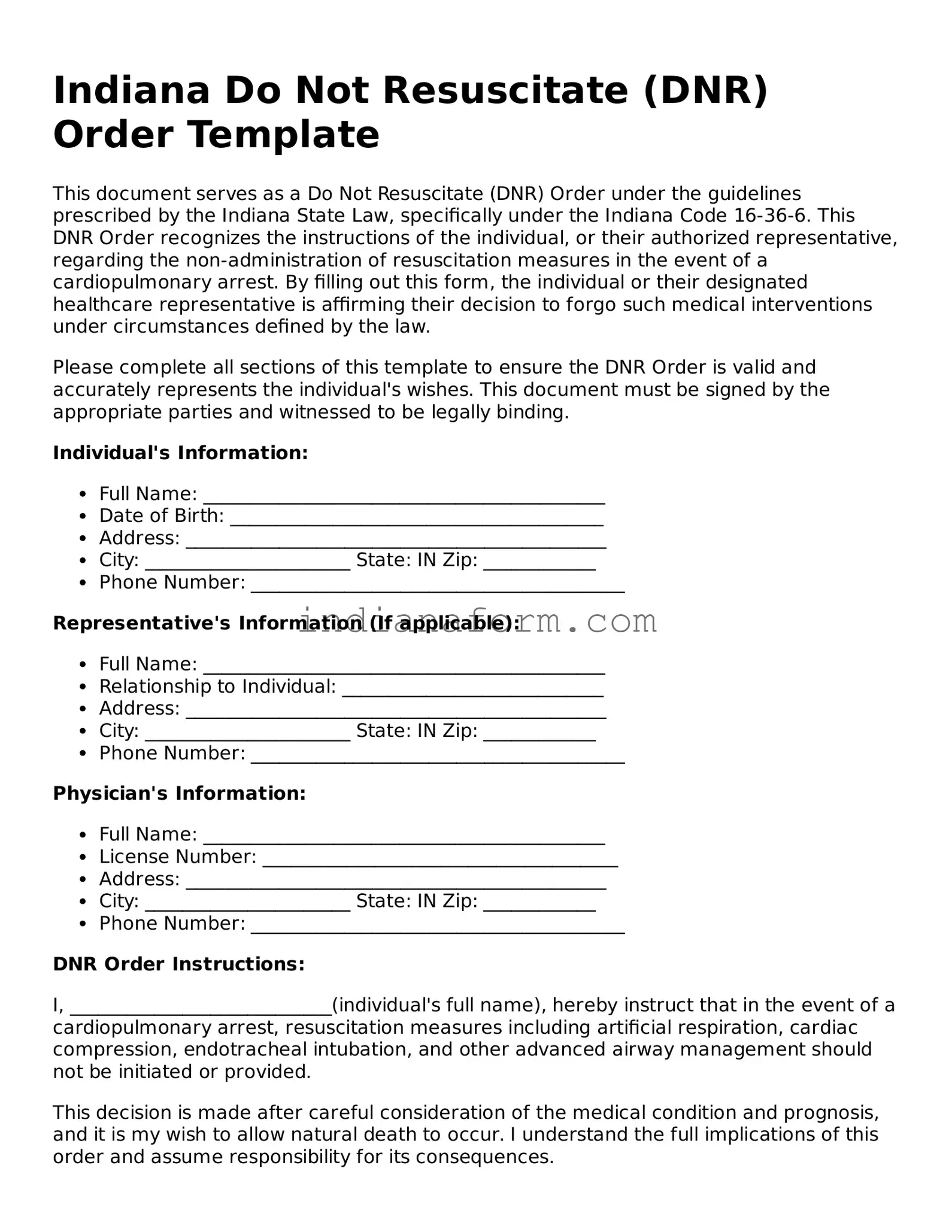What is a Do Not Resuscitate Order (DNRO) in Indiana?
A Do Not Resuscitate Order (DNRO) in Indiana is a legal document. It tells health professionals not to perform CPR (cardiopulmonary resuscitation) if a person's breathing stops or if their heart stops beating. This order is used by people who do not want lifesaving treatments in these situations.
Who can request a DNRO in Indiana?
In Indiana, an adult with the capacity to make their own health care decisions, a legally appointed health care representative, a guardian, or a surrogate decision-maker for a minor can request a DNRO. This ensures that people who can't make decisions for themselves still have their wishes respected.
How can someone obtain a DNRO in Indiana?
To obtain a DNRO in Indiana, one must discuss their wishes with a healthcare provider. The healthcare provider will provide the necessary paperwork and guidance on how to properly complete and execute the order. This ensures the document is filled out accurately and reflects the person's wishes.
Is a DNRO permanent?
No, a DNRO is not permanent. It can be revoked at any time by the person it concerns if they change their mind. This can be done verbally or by destroying the document. A new DNRO can also be issued if the person wishes to reinstate it later.
Does a DNRO need to be notarized or witnessed in Indiana?
In Indiana, a DNRO does not have to be notarized. However, it must be signed in the presence of a witness. The witness must be an adult and cannot be someone who is directly involved in providing healthcare to the person requesting the DNRO.
Where should a DNRO be kept?
A DNRO should be kept in a place where it can be easily found in an emergency. Places such as on the refrigerator, in a personal health record, or with a medical alert bracelet are common. It's also important to inform family members or caregivers of its location and discuss the decision with them ahead of time.
Can a DNRO be used in settings other than a hospital, like at home or in nursing homes?
Yes, a DNRO is effective in any setting, including at home or in a nursing home, in Indiana. It informs emergency medical services (EMS) and healthcare providers about a person's wishes not to have CPR performed, no matter where they are.
What happens if medical staff are not aware of a DNRO during an emergency?
If medical staff are not aware of a person's DNRO during an emergency, they may perform lifesaving measures, including CPR. This underlines the importance of making the DNRO easily accessible and communicating its existence to all healthcare providers and family members.
Is there a cost to create a DNRO in Indiana?
There is typically no cost involved in creating a DNRO itself. However, there might be costs associated with the consultation with healthcare providers when discussing and obtaining the DNRO. It's best to discuss any potential costs upfront with your healthcare provider.
Can a DNRO be overridden by family members or healthcare providers?
In Indiana, a DNRO reflects the wishes of the individual and should be followed by healthcare providers. Family members cannot override it if it accurately reflects the individual’s current wishes. However, if there is confusion or disagreement about the person's true wishes, healthcare providers may consult with family members or the court to clarify.

